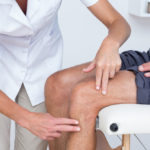If you are a newbie, planning to use sports to build stamina, or participating in a rigorous exercise program to build up your body strength, no matter what your age, here is some information you need to know. These are basic preventive measures to help you avoid injuries through warm ups, routine fitness check-ups and stamina-building exercises.
To begin with you need:
1. A Routine Physical Fitness Test.
Before beginning any new program, you should always consult your functional sports medicine doctor first and foremost. Usually, the human body tends to react negatively to any new activity, and when the activity is forced, it creates a stress on the body and sometimes results in injury. In talking with your doctor, you can go into your own personal health history to hopefully reduce the risk of injury. Depending on your age and physical condition, a stress test may be required. Have a “True” athletic physical assessment to assess any risk of potential injury. This is required because you must modify your sports exercise and body building programs according to your current health condition. Your doctor will advise you on how to set your limits and suggest not only the right exercise for you, but also tell you the stress level that your body can endure under your particular fitness regimen.
2. Increase your physical activity in phases.
After you’ve been cleared by your doctor, this is the second most important concept to understand. All too often many beginning athletes, with lots of enthusiasm, overexert themselves with vigorous exercising and develop fatigue from over exertion that they aren’t yet ready for. You wouldn’t ask a small child to carry something too heavy for them, would you? Then why push yourself into physical activity you’re not yet ready for? Participation in sports is not a one-day camp event nor is it the buzzer round of a quiz competition. You’re not going to walk on to a field or into a gym the first day and work like a pro. You must build to that strength level. When people participate in this mad rush and over-enthusiastic approach they often seriously hurt themselves. The wise approach is to start with warm-ups and stretches, as mentioned earlier, and start with moderate exercises for 20 minutes at the beginning, then work out three times a week and gradually build the tempo based on this initial, slow momentum.
3. Never work out on an empty stomach.
It’s a really bad practice to exercise or participate in vigorous sports immediately after having a heavy or moderately heavy meal. Just as they told you not to go swimming after eating when you were a child, similarly no sports or exercises should be undertaken on an empty stomach. You must eat at least two hours before playing the sport or working out. This will help you maintain the adequate energy levels that are required to exercise and avoid fatigue during the workout and during sports performance.
4. Drink Water Before You Exercise.
Dehydration is a great killer of personal enthusiasm and performance. Therefore, keep your body well hydrated. Drink at least 16 oz. of purified water two hours before you start your workout or your game, and drink water during your exercise or sports and performance to replenish the fluids lost during the exertion.
5. Listen to Your Body as It Speaks to You.
If you experience any weakness, sharp pain or light-headedness while exercising or playing, do not ignore these symptoms. Pay proper attention to them. These signals are your body’s way of telling you that something is going wrong and you should take action immediately. If you ignore these warnings, that’s a sure way to develop severe and chronic problems and injuries. When you do not feel well, you should rest until your body recovers. If the body sends these signals repeatedly, get to your doctor right away.
6. Rest and Recover.
It is important to rest. Sleep is one of the best ways to recover your body’s energy level, but sleep alone might not be enough for some people with less stamina. If they work out too much for too long, it can lead to overtraining syndrome and possibly harm the body, by reducing the body’s immunity, instead of benefiting it.
7. Cross Train with Neuro-stabilization.
Human beings have a creative mindset. If they are asked to do the same work every day, they ultimately get bored. Similarly, people who perform the same exercises every day are prone to develop ‘workout boredom’. The best remedy for this is cross-training. It provides a complete workout for your body without overstressing certain muscle groups.
8. Wear the right gear for the specific sport.
You don’t wear workout sweats while going to a black-tie party, do you? No way! People would think you were nuts if you did! In the same way, wearing the proper sports gear and footwear is essential to prevent injuries as well as wearing the appropriate safety equipment, as advised by your coach or trainer. The proper gear is designed to protect from you from accidental injuries.
by Dr. Thomas M. Mitchell, D.C., CCSP | Owner, Clinic Director Chicago Institute for Health and Wellness Copyright © 2013







Join the conversation